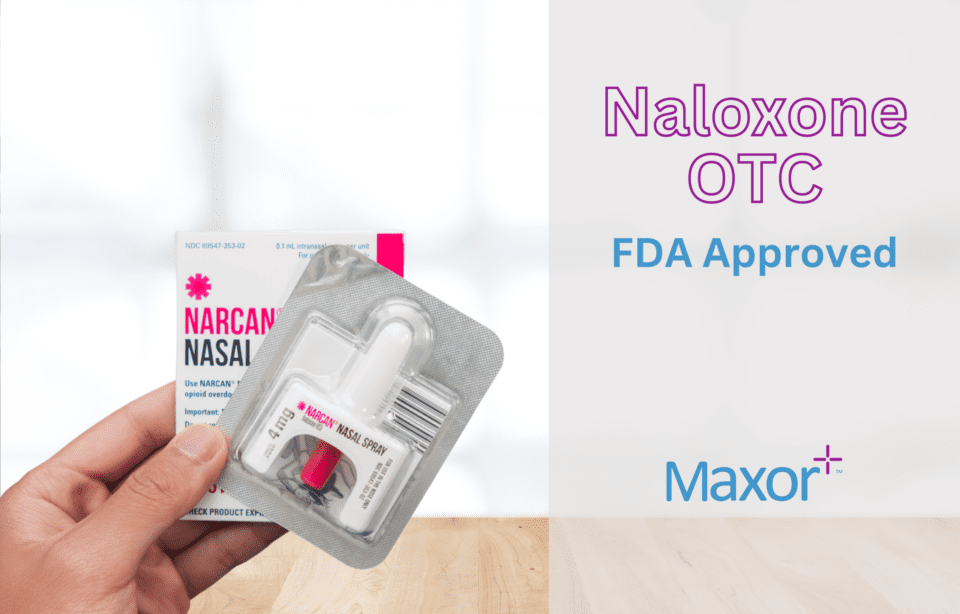


Opioid Abuse: A Public Health Crisis
The United States is experiencing a public health crisis of opioid use with drug overdose as the leading cause of accidental death. 38 Americans die each day from overdoses involving prescription opioids. In addition to these tragic deaths, approximately 10 million people misused 142 million opioid prescriptions in 20201.
As a response to this growing epidemic, naloxone was approved in 1971 by the FDA as a solution labeled for intravenous, intramuscular, or subcutaneous use by paramedics and hospitals for complete or partial reversal of opioid overdoses. In November 2015, the FDA approved Narcan Nasal Spray, which is naloxone in a nasal mist applicator in 4mg and 8mg dosages. These were developed for ease of administration to individuals of all ages, but they must be obtained by a prescription from a health care provider, under statewide naloxone standing orders, or through harm reduction groups.
Some pharmacies may choose not to stock naloxone, and it is currently difficult for harm reduction groups to purchase in bulk. The stigma of opioid dependence may inhibit individuals from interacting with a pharmacist to get the lifesaving medication they need.
On March 29, 2023, the Federal Drug Administration voted to approve Narcan (naloxone hydrochloride nasal spray 4mg) as an over the counter drug given that the benefit-risk profile is supportive of its use as a non-prescription opioid overdose reversal agent. This allows for purchasing options to include vending machines, convenience stores, supermarkets, and online stores.
Opioid Management Solution
In recent years, some PBMs have taken steps to increase access to naloxone. For example, they may remove barriers to coverage, such as prior authorization requirements or high copayments. They may also work with pharmacies to increase awareness of naloxone and ensure that it is readily available to patients who need it.
The Maxor Opioid Management program focuses on the safe prescribing of opioid medications and is a standard offering for all clients. The program implements a set of essential opioid safety edits, which follow current CDC guidelines recommended in November 2022 for prescribing and allow for situational clinical judgement by the dispensing pharmacist. As part of this opioid utilization management safety process, we verify that members have been counseled and have access to naloxone medication if needed. The goals of our program are to decrease the unnecessary exposure to prescription opioid medication, ensure clinically appropriate prescribing of opioid medications, and to review high-risk combinations that allow for targeted patient counseling at the pharmacy.
All of our prior authorization criteria surrounding opioids include confirmation that the member has access to naloxone. MaxorPlus also offers clinical opioid case management through our Care Improvement Program. Clinical pharmacists monitor high-risk members and share information with providers in an effort to provide comprehensive patient care. Even with over-the-counter options being available, naloxone products will still be available if a member has a prescription or approaches a pharmacist to use the standing orders to obtain it.
Overall, PBMs play an important role in increasing access to naloxone and helping prevent opioid-related deaths. By working with pharmacies, manufacturers, and insurance companies, they can help to ensure that naloxone is affordable and accessible to those who need it most.
Sources
1https://www.fda.gov/media/165415/download
https://www.cdc.gov/media/releases/2022/p1103-Prescribing-Opioids.html
https://www.fda.gov/news-events/press-announcements/fda-approves-first-over-counter-naloxone-nasal-spray#:~:text=Today%2C%20the%20U.S.%20Food%20and,for%20use%20without%20a%20prescription.

